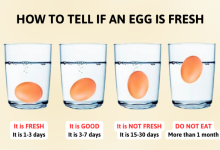
Even if you have the best grill food, you might be making one of these 9 biggest grilling mistakes. Check out these mistakes and how to avoid them.
1. Choosing the wrong grilling method

Before you even start grilling it’s important to know the difference between gas and charcoal. Though gas is easier to work with (easy on and off, easy to read temperature controls, and a steady heat source), it steams more than it smokes, which may mean your chicken skin won’t get as crisp or flavorful. Charcoal takes a little more finesse and has the chance of flare-ups, but it also gives you richer, smokier flavors. So, what do you choose? That depends on the amount of work you want to put into dinner and the desired flavor result.
2. Grilling meat straight from the fridge

Before you throw your next rib, steak, or fish fillet on the grill, take the chill off of your meat. Pull your food from the fridge 15 to 20 minutes before grilling. Don’t try to cook cold meat. Though the flavor may be fine, the texture will be tough since the muscles won’t have time to relax before hitting the flame. Plus, meat that is the same temperature at the surface and core will cook evenly and quickly, compared to meat that is warm on the surface but still chilly inside.
3. Not soaking skewers

If you’re planning on making any kind of kebab or skewer, whether it’s meat or veggie, make sure to soak your wooden skewers for at least 30 minutes before threading them with food. Otherwise, you’ll end up burning away the skewer before the food is evenly cooked.
Bonus tip: Thread food onto two parallel skewers to keep food from spinning when flipping the kebab on the grill.
4. Not using tongs and turners

The more your slice, dice, pierce, poke, and puncture your meat, the drier it will become. Valuable juices are lost every time you poke your meat. So, toss out the prongs and forks and use tongs or turners instead. Also, avoid the temptation to poke, prod, and constantly flip meat on the grill. Set it and forget it for a few minutes so it can cook undisturbed.
5. Not using an instant-read thermometer

How do you know when your meat is done? A lot of people try to go by the look (warning: it may look cooked on the outside, but can still be raw in the middle), smell (everything smells good on the grill, though!), or feel (a good poke or two or three or four, but unless you’re a professional it’s hard to tell). The only way to ensure you’ve really cooked that chicken thigh or porterhouse steak to perfection? Invest in an instant-read thermometer, and use it.
6. Cross-contamination

Food safety is always important when cooking, but we often throw that out the window when grilling. Cross-contamination of raw and cooked foods is a big no-no during cookouts. Remember to use a new, clean plate for food that has been grilled, not placing it on the same plate you used to carry it out raw.
The same goes for tongs, forks, and sauce brushes. And, it’s always a good idea to split your sauces in half: Use half for brushing on the grill and the other half for serving, this way you won’t get raw meat juices in the ready-to-serve sauce.
7. Slicing meat before it rests

After you’ve been standing at the grill and smelling all of those delicious aromas, your first instinct might be to eat as soon as possible. Your stomach may be rumbling and your guests waiting, but it’s really important to let your meat rest for five to ten minutes before slicing and serving. This will let the juices redistribute throughout the meat, instead of being lost with the first cut.
8. Trying to spread your coals before they’re fully hot

Patience is one of the biggest keys to great grilling results, and this is particularly true when starting your fire. In this case, spreading the coals out before they’re completely ready can make the results far harder to predict and control. Bad flavors from improperly burning coals, inconsistent heat, and dramatic variations in cooking times are just a few of the problems.
9. Not cleaning your grill when it’s hot

Most folks wait until the grill is completely cool before they attempt to give it a good scraping. But, all those delicious drippings and not-so-delicious dusty ash actually are much easier to remove when the grill is super hot.
Use proper grill cleaning tools so you don’t get burned. Though those drippings are great on the food hot off the grill, the residue they leave behind can stick to future food, ruining the flavor and safety of whatever you serve next.
10. Cleaning your grill with a wire-bristle brush

Of course, you need to regularly clean your grill—but don’t use a wire-bristle brush. A 2016 study found that these brushes resulted in more than 1,600 emergency room visits since 2002. Researchers found that loose bristles can fall off during cleaning and wind up in the food you’re grilling, leading to painful injuries to the mouth, throat, and tonsils.







